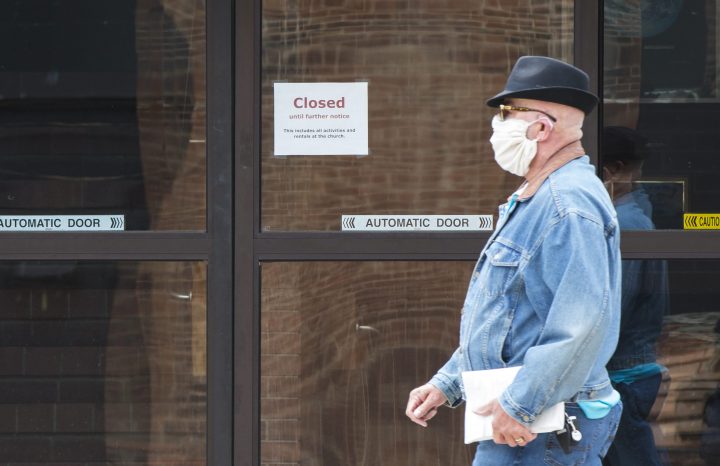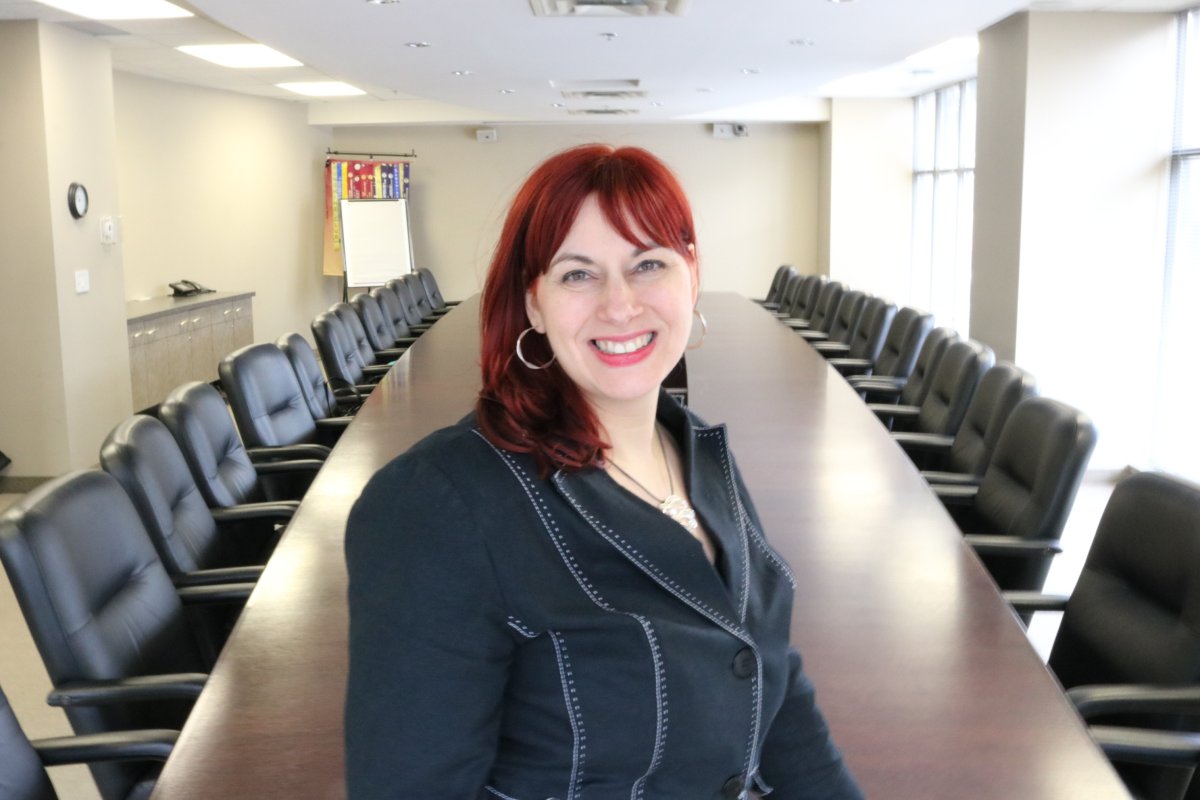As the COVID-19 pandemic continues, so does debate over whether or not to wear a mask in public.

According to a leading Canadian epidemiologist, it’s a simple decision, but people need to focus on population risk rather than their own individual risk or comfort level.
Dr. Raywat Deonandan, an epidemiologist and science communicator based at the University of Ottawa, told 680 CJOB he understands why some people are hesistant about wearing a mask.
However, he said it’s a simple way to help keep the larger community protected.
“People need to understand that the mask isn’t to protect you, necessarily,” said Deonandan. “You get a modicum of protection — maybe one or two per cent of diminished viral transmission.
“It’s to protect other people from you — your mask protects me, my mask protects you. That’s how it works.”
As the coronavirus is spread by droplets that can travel about two metres, he said, wearing a mask acts as a windbreak that prevents air leaving a person’s mouth more than a couple of centimetres.
- ‘Deeply ashamed’: Canadian Medical Association apologizes for harms to Indigenous peoples
- Kate Middleton marks quiet return to work following cancer treatment
- Health Canada gives 1 year to remove BVO from drinks. What are the risks?
- Never heard of eastern equine encephalitis? Cases are ‘likely underreported’
“If you scale this up to a large population, that’s enough of a dampening effect on transmission to lower the overall population transmission sufficiently so not a lot of people get sick.”
Individuals have a right not to wear a mask, said Deonandan, but it’s similar to the way restaurants also have a right not to serve customers who aren’t wearing a shirt or shoes — it’s a public health issue, not an attempted infringement on a person’s choices.

Get weekly health news
“As individuals, we may not notice the impact of the mask on our lives, but at a population level — in coordination with handwashing and distancing — this could have profound effects on our rate of transmission.”
Between 40 and 70 per cent of the population, he said, would need to be on board for it to work well.
“Everyone needs to do their part, and their part is not that daunting. It’s not rocket science, it doesn’t cost you any money… it’s just a little bit of extra responsibility.”
Winnipeg etiquette expert Jessica LoRusso, of In Good Company Etiquette Academy & Finishing School, says while wearing a mask is the right thing to do from a health perspective, it’s not helpful for mask-wearers to shame or act aggressive against those who choose not to follow similar measures.
“You need to wear a mask because you need to be responsible with who you are and to your community, but if someone isn’t wearing a mask… it may be that they don’t know what they need to do, because of conflicting information,” LoRusso told 680 CJOB.
“We have to still be respectful, we have to still act with courtesy… we have to be kind with other people.”
LoRusso said it’s perfectly OK to tell others they’re infringing on your personal space, for example at a grocery store, as long as you remain polite.
“You have the right to say, ‘excuse me, let me get this first and then I’ll let you have this space’,” she said.
“It’s OK. You don’t have to be aggressive or rude about it.”
Overall, she said, wearing a mask in public sends a signal to others that you don’t only care about your own health, but you care about theirs as well. So why not set a good example?
“People wear that mask to say that they’re caring about other people — about their welfare, about how their health is,” she said.
“If you’re going to wear the mask in public, it’s going to start to feel like everyone can do the same thing.”
















Comments